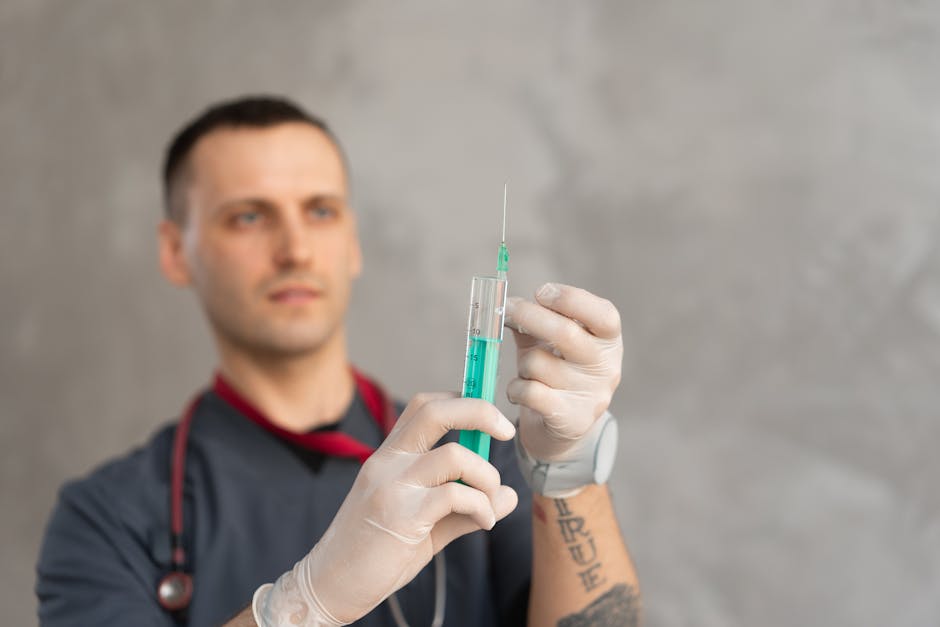The Importance of Vaccinations: Safeguarding Health and Saving Lives
Welcome to a journey through the essential world of vaccinations – a realm where science, medicine, and public health intersect to protect individuals and communities from deadly diseases. In today’s fast-paced world, where information spreads rapidly and opinions vary widely, understanding the significance of vaccinations is more crucial than ever. So, let’s delve into the depth of this topic, exploring its historical roots, current impact, potential future developments, and the controversies that surround it.
The Historical Significance of Vaccinations

It all began with a revolutionary breakthrough in 1796 when Edward Jenner developed the smallpox vaccine, paving the way for the foundation of modern vaccination practices. Jenner’s discovery marked the dawn of a new era in medicine, where immunity could be induced to combat infectious diseases effectively. Since then, vaccines have played a pivotal role in eradicating deadly diseases such as polio, measles, and rubella, saving millions of lives worldwide.
Through rigorous research, development, and implementation, vaccines have become one of the most successful public health interventions in history. The eradication of smallpox in 1980 stands as a testament to the power of vaccines in preventing widespread outbreaks and achieving global health milestones.
The Science Behind Vaccinations

At the core of vaccination lies the principle of immunization – the process by which the immune system is primed to recognize and combat specific pathogens. Vaccines contain weakened or inactivated forms of viruses or bacteria, stimulating the immune response without causing illness. When administered, vaccines prompt the production of antibodies that provide immunity against future exposure to the disease.
By training the immune system to recognize and fight pathogens, vaccines strengthen the body’s natural defenses, reducing the likelihood of infection and the severity of symptoms. This vital mechanism not only protects individuals who are vaccinated but also contributes to herd immunity, safeguarding vulnerable populations who cannot receive vaccines due to medical reasons.
The Impact of Vaccinations on Public Health

Vaccinations have had a profound impact on public health by preventing the spread of infectious diseases and reducing morbidity and mortality rates. Immunization programs have successfully controlled outbreaks of diseases such as measles, mumps, and pertussis, preventing widespread epidemics and saving countless lives.
Additionally, vaccines have contributed to the elimination of diseases in specific regions, such as the near eradication of polio in many parts of the world. The global effort to vaccinate populations against infectious diseases has been instrumental in achieving significant reductions in child mortality rates and improving overall health outcomes.
The Importance of Vaccination Across the Lifespan

Vaccinations are not just for children; they play a crucial role in safeguarding health across the entire lifespan. From childhood immunizations to adult boosters, vaccines protect individuals at every stage of life from preventable diseases. For example, the influenza vaccine is recommended annually for individuals of all ages to reduce the risk of seasonal flu and its complications.
Furthermore, vaccinations are especially vital for vulnerable populations, including pregnant women, elderly individuals, and immunocompromised individuals. By ensuring high vaccination coverage across all age groups, we can create a protective shield that limits the transmission of infectious diseases and enhances overall community immunity.
Addressing Controversies and Misconceptions
Despite the overwhelming evidence supporting the safety and effectiveness of vaccines, controversies and misconceptions persist in public discourse. From concerns about vaccine ingredients to skepticism about vaccine efficacy, various factors contribute to vaccine hesitancy and refusal. It is essential to address these issues through education, transparent communication, and evidence-based advocacy.
By engaging with communities, healthcare providers, and policymakers, we can dispel myths and misinformation surrounding vaccines and promote informed decision-making. Vaccination remains a cornerstone of public health, and it is crucial to work together to overcome barriers to immunization and ensure widespread acceptance of vaccines.
The Future of Vaccinations: Innovations and Challenges
As we look towards the future, advancements in vaccine technology hold promise for addressing emerging infectious diseases and improving vaccine delivery mechanisms. From mRNA vaccines to nanotechnology-based platforms, researchers are exploring innovative approaches to vaccine development that could revolutionize immunization strategies.
However, along with these exciting developments come challenges such as vaccine distribution disparities, vaccine hesitancy, and the spread of misinformation online. To harness the full potential of vaccines in safeguarding public health, we must address these obstacles through collaborative efforts, advocacy campaigns, and policy interventions that promote equitable access to vaccines for all.
Conclusion: Embracing the Power of Vaccines
In conclusion, the importance of vaccinations cannot be overstated in the realm of public health. Vaccines have a proven track record of saving lives, preventing outbreaks, and promoting overall well-being. From historical milestones to future innovations, vaccines continue to play a vital role in protecting individuals, communities, and the global population.
As we navigate the complexities of the modern world, it is essential to recognize the value of vaccines in preserving health and preventing disease. By championing immunization efforts, advocating for vaccine equity, and fostering a culture of trust in vaccination, we can build a healthier, safer future for generations to come.
Remember, every vaccine administered is a step towards a healthier world for all. Let’s join hands in embracing the power of vaccines and ensuring that no one is left behind in the journey towards a disease-free future. Together, we can protect lives, strengthen communities, and safeguard the health of our planet.




